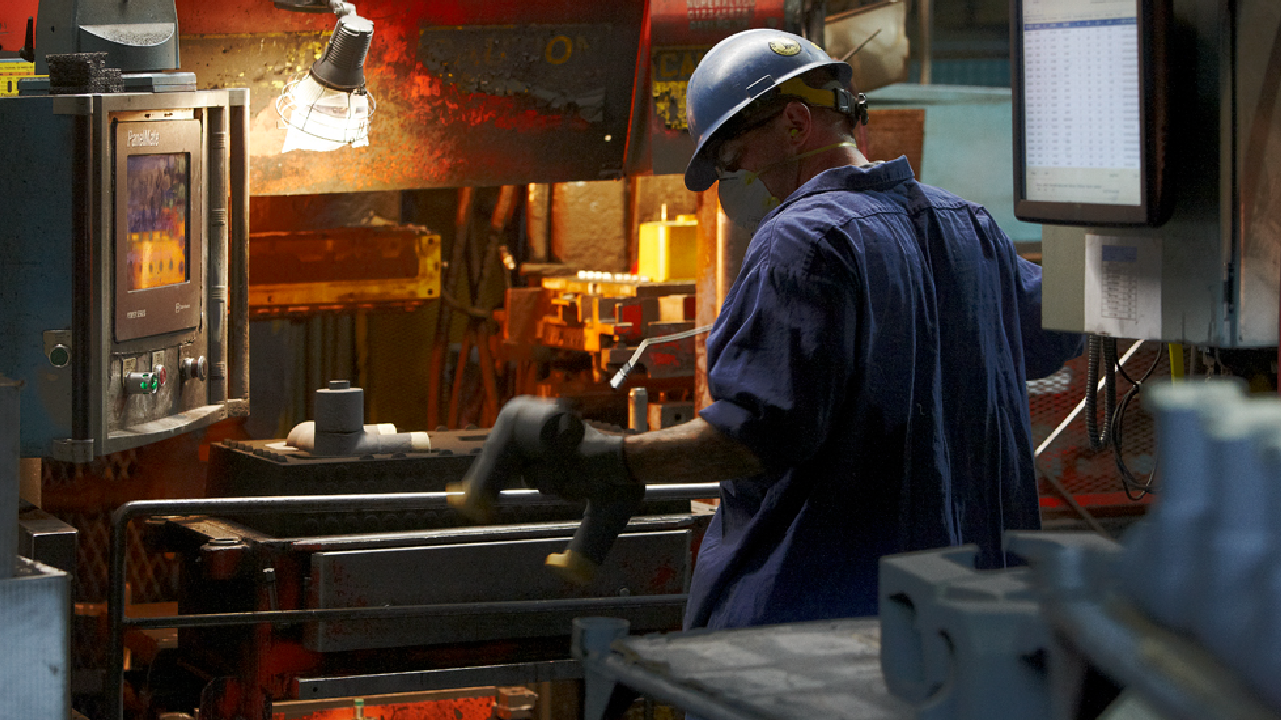
The Machinery You’ll Operate in a Day on the Foundry Floor
The American casting foundry was born out of necessity. During the mid-1600s, there was a growing need for metal containers, utensils and tools. People needed pots to feed their families and at that time the colonists needed to build their own industries to harness their resources and take care of each other. As the population grew, so did the need for a way to produce metal items quickly and affordably. The first successful American foundry began operations in 1646 and the foundry industry hasn’t looked back since.
Casting foundries have always prioritized innovation and efficiency, and the machines foundry workers use on a daily basis play a key role in that mission. Read on as we discuss why foundries are important and how they use technology to create high-quality castings, ductile iron pipes and OEM parts.
The Casting Process
Foundries specialize in metal casting to make both ornamental and functional metal objects. The casting process consists of pattern making, mold creation and metal melting. Once the metal is melted, it is poured into the mold and will solidify over time. Once it has solidified, the metal is removed from the mold, cleaned and designed into an object. Molds can be made of ceramic steel, silica sand, plaster or metal. Casting foundries can make a wide variety of items ranging from door and cabinet hardware to skillets, waffle irons, ductile iron pipes and OEM parts.
Qualities of Foundry Workers
Good foundry workers are the backbone of any successful operation. They are trusted to melt metals and create castings from molds. They also create those molds and participate in the metal casting process, as well as monitor temperature and maintain the machinery used in the foundry. Foundry workers regularly demonstrate dexterity and excellent hand-eye coordination by removing solidified casts and using power tools.
Equipment Used in a Foundry
Modern foundries are filled with technology to produce high-quality metal castings. Foundry workers use a wide assortment of machinery for pattern making, casting and molding. Equipment you can expect to use in a foundry includes:
- Melting furnaces
- Ladles
- Forklifts
- Cranes
- Conveyors
- Transfer vessels
All foundry equipment is specifically designed to withstand melt shop heat. Foundries can be either ferrous (they work with iron and steel) or non-ferrous (aluminum, brass, bronze, copper etc.) and the type of machinery found in a foundry is dictated by the metals the foundry works with.
- Electric arc furnaces are a great choice for foundries that work with steel.
- Foundries specializing in copper are more likely to use induction furnaces.
Furnaces can vary in size, from small tabletop equipment to furnaces that weigh several tons. The same variability also applies to patternmaking and molding machinery, as well as any other foundry equipment used in the metal casting process.
We Want You On Our Foundry Floor
Since 1936, we have been a market leading casting foundry in Minneapolis that produces ductile iron pipes, high quality OEM parts and castings. Despite our success, we remain grounded by our core values: passion, improvement, empowerment and owning the solution. These values help us serve our clients, team members and community in the best possible way. When it comes to producing OEM parts and completing casting projects of all sizes, join an iron foundry that can offer a fully integrated solution by using design expertise and a seamless supply chain, delivering world-class products in a finished and timely manner.
Contact your friends at Prospect Foundry today to learn how you can become a part of our team.
